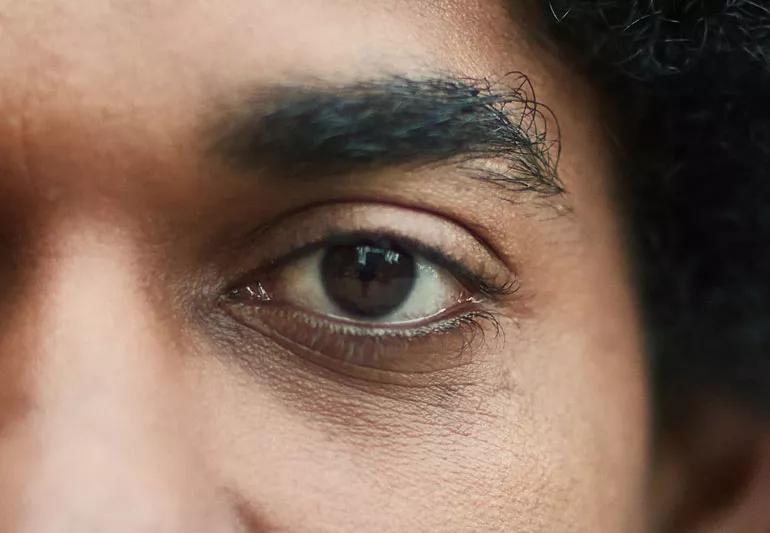Common causes for repetitive spasms of your eyelid muscle

There’s nothing worse than trying to focus during the day with a pesky eye twitch that won’t stop flickering. You know what we mean — that repetitive, involuntary spasm of your eyelid muscle that occurs every few seconds for a minute or two.
Advertisement
Cleveland Clinic is a non-profit academic medical center. Advertising on our site helps support our mission. We do not endorse non-Cleveland Clinic products or services. Policy
The most common culprits behind the dreaded eye twitch are stress and fatigue. Other causes include:
But is that twitch just annoying or can it be a sign of a more serious problem? Oculofacial plastic surgeon Julian D. Perry, MD, has your answer.
Eye twitches are common and usually aren’t anything to worry about, says Dr. Perry. Most of the time, these unpredictable eye spasms will resolve on their own without any need for medical treatment.
“Many patients worry this may represent a neurologic problem. They worry that something serious is going on, but that’s rarely the case,” Dr. Perry says.
“Several things can cause one or both eyes to twitch and they can last for days to weeks, which can be very frustrating,” he says. “But these types of twitches are rarely a sign of a serious problem.”
To get your eye twitch to calm down, Dr. Perry suggests getting enough rest, cutting back on caffeine and reducing stress as much as possible. Eye drops also can help if your eyes need moisture.
If your eye twitching lingers for longer periods or becomes particularly bothersome, Dr. Perry recommends a visit to an eye doctor to make sure nothing more serious is going on.
Advertisement
Seek an evaluation if you notice any of these four signs:
Eyelid twitching can sometimes be a part of spasm conditions affecting the eyes, such as essential blepharospasm or hemifacial spasm. “These disorders were some of the very first indications for Botox® injections, the same medicine that we now use to treat wrinkles,” says Dr. Perry.
Very rarely, eyelid spasms are a symptom of a more serious brain or nerve disorder. In these rare cases, eyelid spasms may be an early warning sign of a chronic movement disorder, especially if the spasms are accompanied by other facial twitches or uncontrollable movements.
“While serious disorders are rare, patients who are finding those benign twitches very annoying can find quick improvement with a few injections,” Dr. Perry says. “So it’s worthwhile to come in for an evaluation if the symptoms are bothersome.”
Advertisement

Sign up for our Health Essentials emails for expert guidance on nutrition, fitness, sleep, skin care and more.
Learn more about our editorial process.
Advertisement

Pink eye tends to start in one eye before spreading to the other, while allergies usually affect both eyes at the same time

Early morning red eyes can be a sign of several conditions, like dry eyes, allergies and eye strain

See an eye specialist if your pain isn’t going away and comes with other symptoms

Your eyes could be burning because of allergies, elevated salt levels, dry eyes and more

One is a raised yellow spot on your eye, the other is a fleshy growth

When worn incorrectly, contacts can cause or worsen dry eye symptoms

Preservative-free lubricating drops, a humidifier, sunglasses and preventive medications can help with dry eyes, no matter the season

In moderation, vitamins A, C, D, E, B12 and omega-3 fatty acids can improve and maintain your eye health

Even small moments of time outdoors can help reduce stress, boost mood and restore a sense of calm

A correct prescription helps your eyes see clearly — but as natural changes occur, you may need stronger or different eyeglasses

Both are medical emergencies, but they are very distinct events with different causes